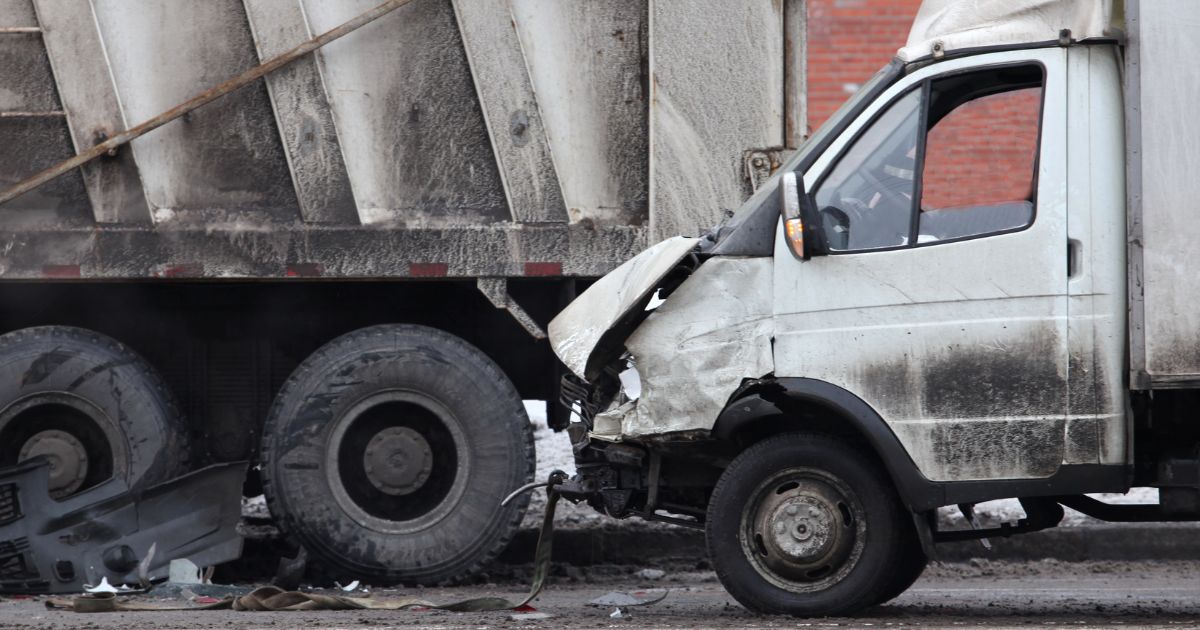Jackknife accidents involving large trucks and trailers are among the most dangerous events on the road. They happen when a truck’s trailer swings out and forms an angle with the cab, resembling the shape of a folding knife. These crashes can lead to severe injuries, extensive property damage, or worse.
What Causes a Jackknife Accident?
Jackknife accidents generally result from sudden braking, especially in poor weather or road conditions. When that happens, the trailer continues moving forward while the truck’s cab slows, causing the trailer to swing out.
Other factors that can lead to jackknife situations include sharp turns, steep road gradients, mechanical failures, or improperly loaded cargo. Certain road conditions, like wet or icy surfaces, can make it harder for the driver to control the trailer, increasing the risk of a jackknife. High speeds and inadequate truck maintenance also elevate the likelihood of these incidents.
Why Are Jackknife Accidents More Dangerous Than Other Types of Truck Accidents?
Jackknife accidents are particularly hazardous because they affect the trailer’s movement. When the trailer swings out, it can block multiple lanes, creating an elevated risk of collisions with nearby vehicles. Since trucks are much larger and heavier than regular cars, the impact is far more intense, which often results in significant injuries to passengers and extensive damage to other vehicles.
Additionally, a jackknifed trailer may cause pile-ups, where multiple vehicles collide in succession. This makes it challenging for drivers behind the truck to stop in time, and the risk of injuries or fatalities multiplies with each vehicle involved in the collision.
What Role Does Cargo Loading Play in Preventing Jackknife Accidents?
Proper cargo loading is essential for preventing jackknife incidents, as the load affects the trailer’s stability and balance. Overloading or unevenly distributing weight in the trailer can make it harder for the driver to control the vehicle, particularly when braking or maneuvering. If the cargo shifts during transit, it can destabilize the trailer and increase the risk of a jackknife accident. Trucking companies are required to adhere to specific loading guidelines to minimize these risks.
Are There Ways for Truck Drivers to Prevent Jackknife Accidents?
Truck drivers can adopt several driving techniques to reduce the risk of jackknife incidents.
- Maintaining a safe distance from other vehicles is critical, providing more time to brake slowly and avoid sudden stops.
- Drivers should also use proper braking techniques, such as using engine brakes on steep roads or gradually braking in poor weather, to maintain control.
- Regular vehicle maintenance helps brakes, and other essential systems function correctly.
What Are the Consequences of Jackknife Accidents?
The consequences of jackknife accidents can be devastating for everyone involved. Aside from severe injuries or fatalities, these accidents often lead to extensive property damage and road closures, resulting in traffic delays.
Financial costs can also be substantial, particularly when survivors have overwhelming medical expenses and cannot return to work temporarily or permanently. The emotional toll on those involved can also be significant, as recovery from injuries or loss often requires considerable time and resources.
These consequences highlight the importance of preventive measures and the responsibility of truck drivers and trucking companies to prioritize safety on the road.
Let the Skilled Virginia Beach Truck Accident Lawyers at Anchor Legal Group, PLLC Fight to Pursue Justice
Jackknife accidents change lives. Our respected Virginia Beach truck accident lawyers at Anchor Legal Group, PLLC will be a valuable resource for your case. To learn more, call 757-LAW-0000 or submit our online form to schedule a free consultation. Located in Virginia Beach, we serve clients in Chesapeake, Norfolk, Suffolk, Portsmouth, Newport News, Hampton, Williamsburg, and Eastern Shore.


